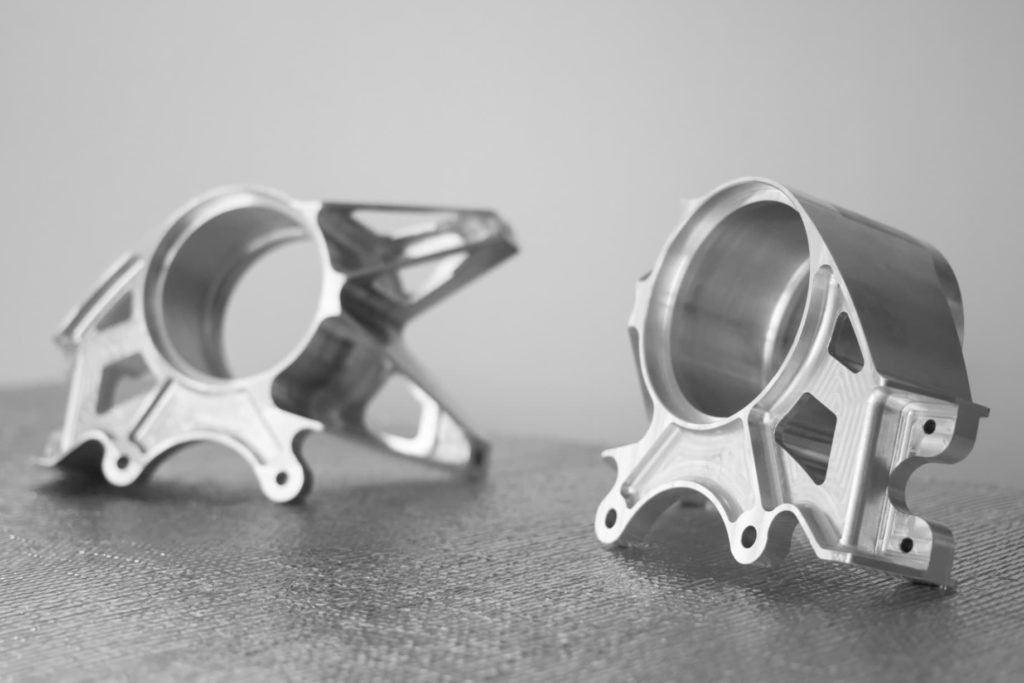About Alcast Company
About Alcast Company
Blog Article
Indicators on Alcast Company You Need To Know
Table of ContentsSome Known Details About Alcast Company The Ultimate Guide To Alcast CompanyAlcast Company for DummiesWhat Does Alcast Company Do?Alcast Company for BeginnersAll about Alcast Company
The subtle difference hinges on the chemical web content. Chemical Comparison of Cast Aluminum Alloys Silicon promotes castability by lowering the alloy's melting temperature level and boosting fluidity throughout spreading. It plays an essential function in permitting intricate molds to be filled precisely. Furthermore, silicon adds to the alloy's toughness and wear resistance, making it valuable in applications where resilience is important, such as vehicle parts and engine components.It likewise enhances the machinability of the alloy, making it much easier to process into ended up items. In this method, iron adds to the total workability of light weight aluminum alloys.
Manganese adds to the toughness of light weight aluminum alloys and enhances workability (aluminum casting manufacturer). It is frequently utilized in wrought light weight aluminum products like sheets, extrusions, and profiles. The visibility of manganese aids in the alloy's formability and resistance to fracturing throughout construction processes. Magnesium is a lightweight aspect that offers toughness and effect resistance to aluminum alloys.
Get This Report about Alcast Company
Zinc enhances the castability of aluminum alloys and aids regulate the solidification procedure throughout spreading. It enhances the alloy's stamina and hardness.

The primary thermal conductivity, tensile toughness, return stamina, and prolongation differ. Select appropriate resources according to the efficiency of the target item generated. Amongst the above alloys, A356 has the highest thermal conductivity, and A380 and ADC12 have the lowest. The tensile limit is the opposite. A360 has the very best return toughness and the highest possible prolongation price.
The Only Guide for Alcast Company

In precision casting, 6063 is fit for applications where detailed geometries and top quality surface coatings are vital. Examples consist of telecommunication rooms, where the alloy's superior formability permits for sleek and cosmetically pleasing styles while maintaining structural honesty. In the Lights Solutions industry, precision-cast 6063 parts create sophisticated and efficient lights components that require elaborate forms and excellent thermal efficiency.
The A360 shows superior elongation, making it perfect for complex and thin-walled components. In precision casting applications, A360 is fit for sectors such as Consumer Electronics, Telecommunication, and Power Devices.
An Unbiased View of Alcast Company
Its unique residential or commercial properties make A360 a useful selection for precision spreading in these industries, improving item resilience and quality. Casting Foundry. Light weight aluminum alloy 380, or A380, is an extensively used spreading alloy with a number of unique features.
In precision spreading, aluminum 413 shines in the Customer Electronic Devices and Power Equipment markets. It's generally used to craft intricate parts like smartphone real estates, electronic camera bodies, and power tool coverings. Its accuracy is impressive, with tight tolerances approximately 0.01 mm, making certain remarkable item assembly. This alloy's superior rust resistance makes it an outstanding choice for exterior applications, ensuring resilient, long lasting products in the stated sectors.
Getting The Alcast Company To Work
As soon as you have determined that the aluminum die casting process appropriates for your task, an essential next step is deciding on one of the most suitable alloy. The aluminum alloy you select will substantially impact both the spreading process and the homes of the end product. As a result of this, you have to make your decision very carefully and take an enlightened approach.
Figuring out one of the most suitable light weight aluminum alloy for your application will mean evaluating a vast variety of attributes. These comparative alloy features follow the North American Pass Away Spreading Association's guidelines, and we've divided them into 2 classifications. The additional info first group addresses alloy qualities that impact the production process. The second covers attributes affecting the buildings of the last item.
Getting The Alcast Company To Work
The alloy you pick for die spreading directly influences a number of facets of the casting procedure, like how very easy the alloy is to deal with and if it is vulnerable to casting issues. Warm cracking, likewise known as solidification splitting, is a typical die spreading problem for light weight aluminum alloys that can cause internal or surface-level tears or fractures.
Specific light weight aluminum alloys are extra susceptible to warm breaking than others, and your option should consider this. It can damage both the cast and the die, so you need to look for alloys with high anti-soldering residential properties.
Corrosion resistance, which is currently a noteworthy quality of light weight aluminum, can vary significantly from alloy to alloy and is a crucial characteristic to consider depending on the environmental conditions your product will be revealed to (Casting Foundry). Wear resistance is another building typically sought in aluminum products and can differentiate some alloys
Report this page